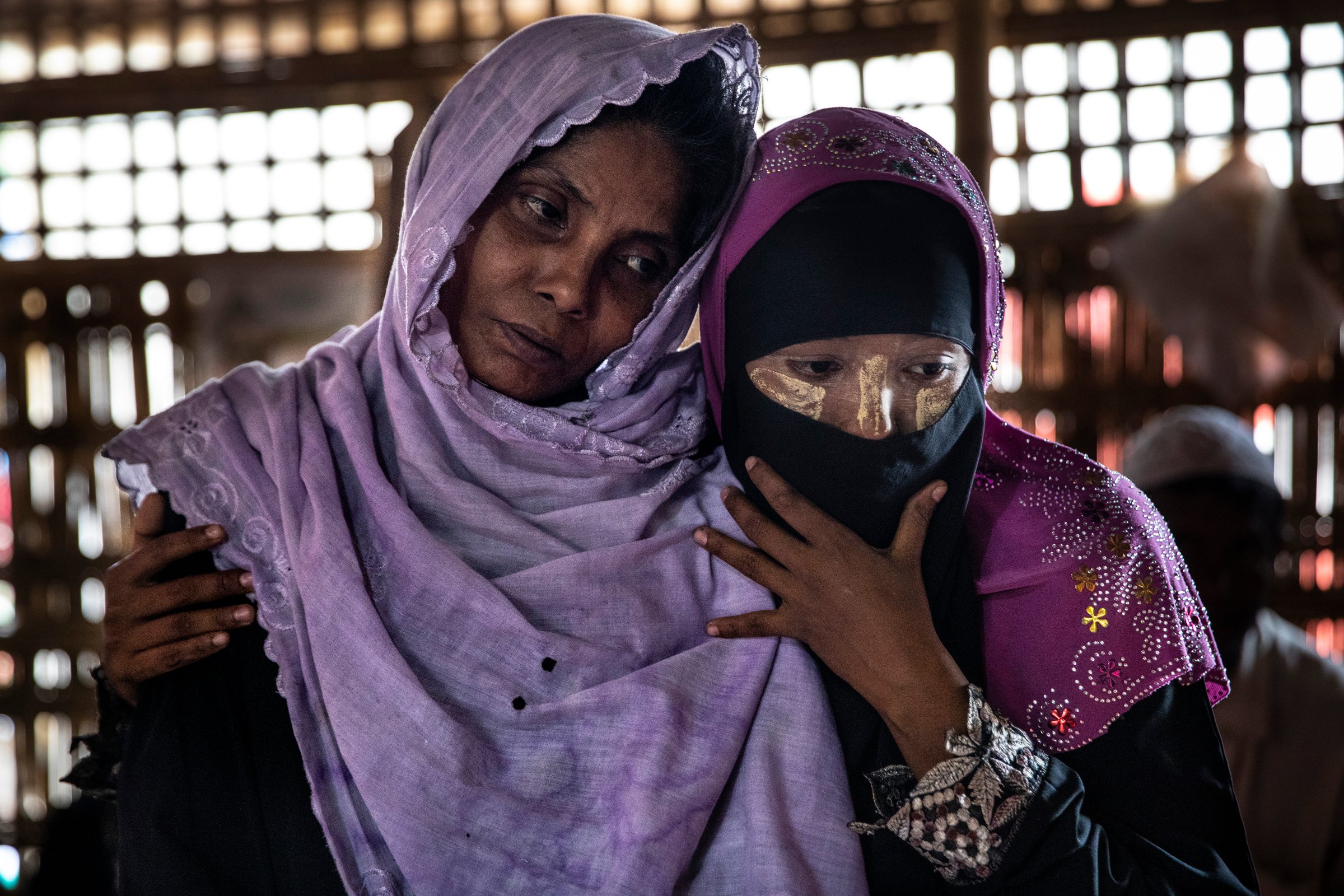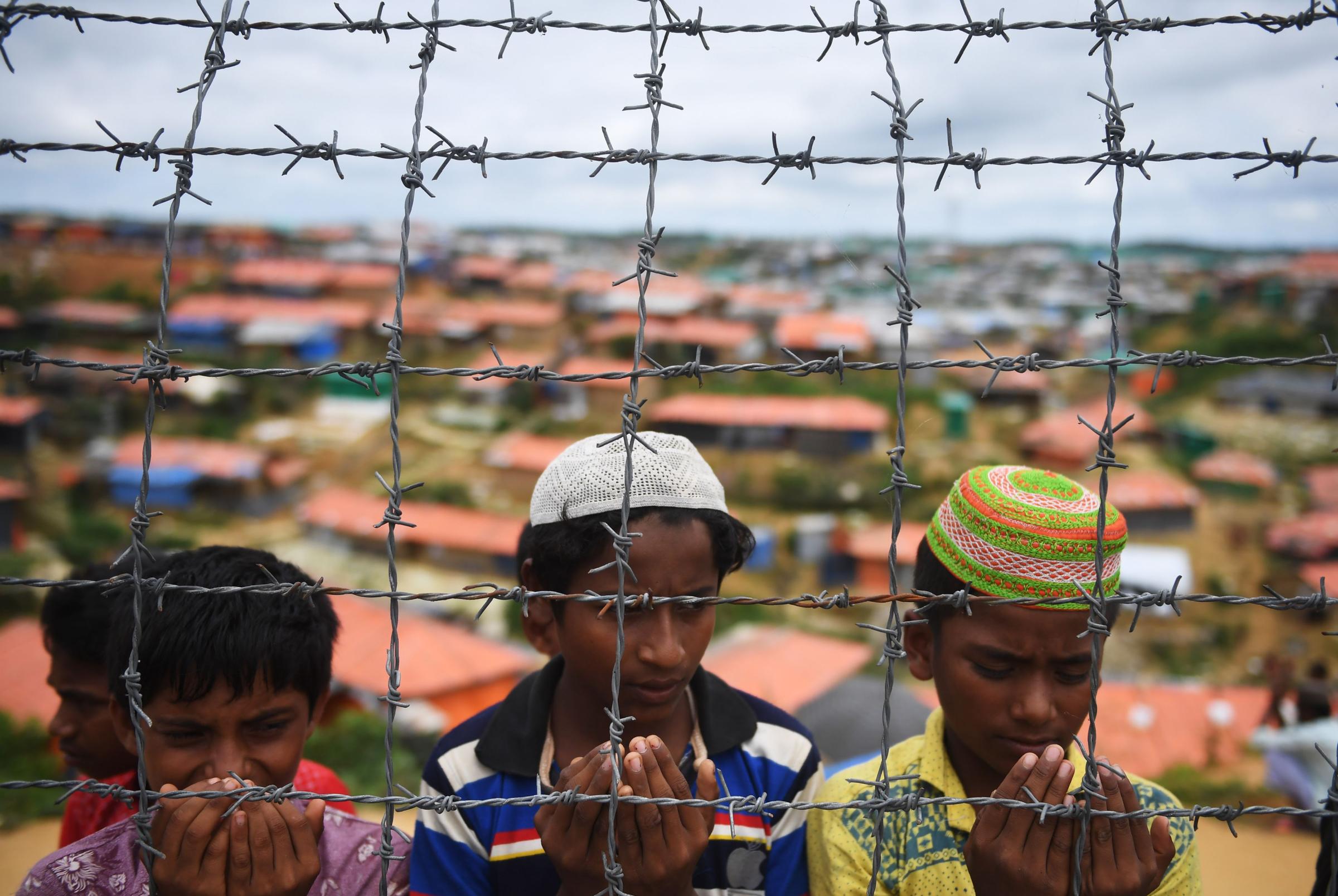
At long last, momentum is building to hold the perpetrators of the gruesome atrocities against the Rohingya in Myanmar to account.
Accountability will be critical to overcoming decades of impunity in Myanmar, where a U.N.-mandated fact-finding mission concluded that senior military officials should be investigated and prosecuted for genocide, war crimes and crimes against humanity. An investigative mechanism is being established to collect, analyze and preserve evidence, while the International Criminal Court has opened a preliminary examination into the forced deportation of the Rohingya to Bangladesh. These developments should be welcomed, even if significant barriers to accountability remain.
But a singular focus on accountability risks overshadowing the need to bring about tangible improvements in Rohingyas’ lives now. The international community must focus on compelling Myanmar to respect and protect Rohingyas’ fundamental rights and on working with Bangladesh to develop interim solutions that bolster the Rohingya and affected Bangladeshi communities. This will require a holistic and coordinated strategy that places the rights and wellbeing of the Rohingya at its core.
More than 700,000 Rohingya, a mostly stateless Muslim minority from Myanmar’s Rakhine state, have fled across the border to Bangladesh since August last year, when the Myanmar military launched a brutal campaign of arson, rape and murder in response to coordinated attacks on security outposts. They are now safer in Bangladesh, but confined to camps without adequate access to education or livelihood opportunities.
Read more: Myanmar’s Crisis, Bangladesh’s Burden: Among the Rohingya Refugees Waiting for a Miracle
Despite overwhelming evidence to the contrary, Myanmar’s civilian government, led by Nobel laureate Aung San Suu Kyi, continues to deny that grave abuses were committed and to defend the military’s use of force as a legitimate response to terrorist attacks. Moreover, since last August Myanmar has demonstrated no political will to rectify what U.N. investigators last week called an “ongoing genocide” against the estimated 600,000 Rohingya still languishing in Rakhine in apartheid-like conditions. Rather than taking steps to provide Rohingya with freedom of movement, access to livelihoods or services and a legal identity or granting unfettered access to Rakhine to independent observers, humanitarian workers and the media, Myanmar has sought to alleviate international pressure through purely tokenistic measures.
And yet, even though conditions are not conducive, officials from Myanmar and Bangladesh on Tuesday agreed to begin repatriating Rohingya to Myanmar as early as mid-November. Bangladesh is understandably eager to move forward with the repatriation agreement it struck with Myanmar last November, both to keep pressure on Myanmar and to allay domestic concerns in advance of elections expected in December. But any process that is safe, voluntary and dignified will take years, even in the unlikely event that Myanmar takes steps to improve the situation for Rohingya in Rakhine.
To complement the recent movement towards accountability, more concerted efforts are needed to improve Rohingyas’ lives now and to provide them with hope for the future.
In Myanmar, targeted sanctions imposed by the West are largely symbolic (and exclude Myanmar’s Commander-in-Chief), while trade sanctions, recently mooted by the European Commission, are likely to be counterproductive. Given that Myanmar has the support of regional actors willing to overlook grave human rights abuses for economic or geopolitical gain, the West must be more creative in manufacturing leverage over Myanmar. There are several ways to do so.
First, the international community must ensure that Myanmar keeps its stated commitment to implement the recommendations of the Advisory Commission on Rakhine State led by the late Kofi Annan by creating clear, public benchmarks that establish a measure for progress and a platform for advocacy.
Second, the international community must recognize opportunities to increase leverage by sticking to its principles. Though flawed, a controversial Memorandum of Understanding offered an opportunity for UNDP and UNHCR to expand “effective access” to Rakhine had they not quickly capitulated to Myanmar’s demand they focus an initial assessment on 23 hand-picked villages. While access should not be the ultimate objective, it can be leveraged to enhance rights monitoring and protection, to hold Myanmar to account for implementing the Rakhine Advisory Commission recommendations and to strengthen advocacy efforts.
Finally, the international community should consider withholding assistance from detention camps and Myanmar’s deeply flawed “village-ification” plans while conditioning future humanitarian and development support to human rights improvements. Cutting aid would have significant affects on the Rohingya that rely on humanitarian assistance, but it would be a strong statement on the failure of status quo approaches to influence Myanmar.
If pressure should be the primary modus operandi for the international community in Myanmar, the focus in Bangladesh should be on engagement.

As host to some 900,000 Rohingya refugees in overcrowded camps, Bangladesh is in need of tremendous humanitarian support. While funding for the $951 million Joint Response Plan has increased substantially in the past two months, it is still only 45% funded, with key sectors, such as education and health, funded at less than 30%. Further shortfalls risk reducing the scope of life-saving services, increasing tension between refugees and adversely affected Bangladeshi communities, and signaling to Bangladesh that the international community is not committed to the degree required.
As it becomes clearer that this crisis will not soon be resolved, the international community must continue to engage the Bangladesh government in quiet yet honest discussions on the path ahead, while undertaking more serious efforts to ensure Rohingya are included in decision-making processes. These conversations will be much more constructive if Bangladesh is confident in sustained political and financial efforts to address both the causes and effects of the Rohingyas’ mass displacement.
The status quo is not sustainable — politically, economically, socially and environmentally — for the Bangladesh government, affected Bangladeshi communities, or for the Rohingya. Discreet conversations between international actors, the Bangladesh government and affected communities will help to ensure all stakeholders’ needs are met, voices heard and rights respected.
Accompanied by the pursuit of accountability, a mix of pressure on Myanmar and engagement with Bangladesh offers the best opportunity to improve Rohingyas’ lives now and into the future.
More Must-Reads From TIME
- The 100 Most Influential People of 2024
- The Revolution of Yulia Navalnaya
- 6 Compliments That Land Every Time
- What's the Deal With the Bitcoin Halving?
- If You're Dating Right Now , You're Brave: Column
- The AI That Could Heal a Divided Internet
- Fallout Is a Brilliant Model for the Future of Video Game Adaptations
- Want Weekly Recs on What to Watch, Read, and More? Sign Up for Worth Your Time
Contact us at letters@time.com